Advertisement
How and when to use over-the-counter drops
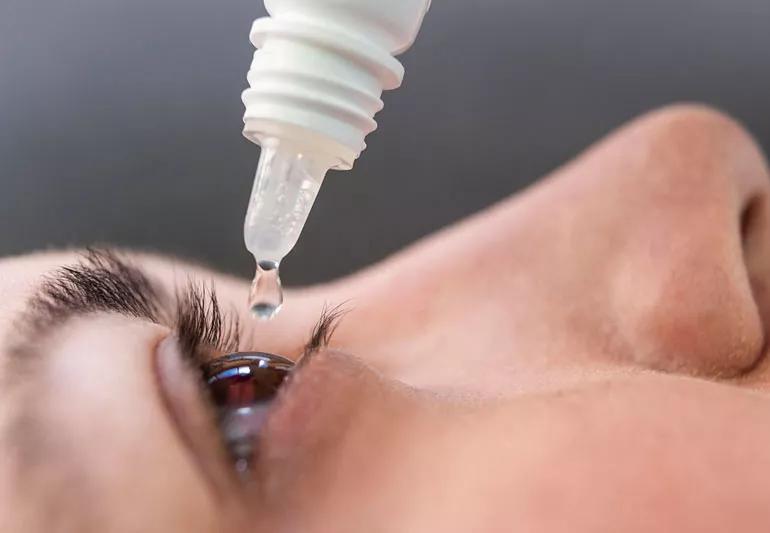
Itchy, watery eyes are the worst. But what’s even more troublesome is arriving at your local pharmacy to find so many over-the-counter eye drops to choose from. How do you know which eye drops will work best for you?
Advertisement
Cleveland Clinic is a non-profit academic medical center. Advertising on our site helps support our mission. We do not endorse non-Cleveland Clinic products or services. Policy
Ophthalmologist Peter McGannon, MD, breaks down eye-drop products into three categories based on their active ingredients.
How they work: When you have an allergic reaction — say to pollen, dust, or animal dander — your body releases histamines. These tell your body that allergens have invaded it, and, in response, your body triggers the classic allergy symptoms: runny nose and itchy, watery eyes.
Dr. McGannon explains that allergy eye drops work by blocking the histamine response in your body altogether.
“These drops block the overreaction of the body to allergens,” he says. Allergy eye drops most commonly contain an antihistamine (like pheniramine or naphazoline) or a newer, long-acting antihistamine (such as olopatadine or ketotifen), which prevent your body from releasing histamines in the first place.
Use: Allergy drops help reduce the redness, itching and watering from seasonal allergies from your eyes. Use, as needed, according to the instructions on the label.
How they work: These shrink the blood vessels on the surface of the eye — a process called vasoconstriction — that makes the redness go away. “Typically these drops may occasionally contain allergy relievers and mild lubricants,” says Dr. McGannon.
Advertisement
Use: As the name indicates, these help reduce the redness of irritated eyes. They’re okay for occasional use. But use caution: Overuse may make your eyes dependent on them, and they may make your redness worse if you use them for many days in a row. Dr. McGannon adds, “Using redness relievers regularly for chronically red eyes may mask more serious eye problems that need to be addressed by a doctor.”
How they work: If you have super dry eyes that feel itchy and gritty, artificial tears can bring relief. Artificial tears’ main focus is keeping your eyes moist and lubricated. “They are made to mimic the way real tears work in the eye,” says Dr. McGannon. They contain electrolytes and lubricants to keep your eyes lubricated and healthy. Use: Use them, as needed, to treat dry eye or to ease contact lens irritation or mild allergies. However, don’t confuse artificial tears with anti-redness drops, which you should use only sparingly, Dr. McGannon says.
Chronic dry eye can indicate a larger problem within the body. Dry eye is a common problem, especially as we get older. While contact lens wearers often experience dryness and irritation, women may experience dry eye after menopause because of hormonal changes.
“Symptoms of dry eye are typically scratchy, gritty, burning eyes or intermittent blurring, especially while reading or looking at screens,” says Dr. McGannon. “But contrary to what most people think, tearing is one of the most common signs of dry eyes.”
Tears are a reaction to dry eye, but these reactive tears are too watery and don’t lubricate the eye well, he says.
Dr. McGannon says generic store brands generally work as well as name-brand products for eye drops.
However, be wary of drops labeled “natural,” “homeopathic” or “herbal.” While they could work well for you, there is no reliable data to support their use or effectiveness, he says.
If you have seasonal or pet allergies that have been well-documented by your doctor, using over-the-counter eye drops, as needed, are appropriate.
“But if you have unexpected eye irritation after a recent upper respiratory infection or exposure to someone with a red eye, then there is a high probability of a viral or bacterial infection,” says Dr. McGannon.
“Eye conditions that are not improving with over-the-counter products, are quickly worsening, or are accompanied by severe pain or vision changes or loss should be evaluated by a doctor right away,” he says.
Advertisement
Learn more about our editorial process.
Advertisement

Peepers get pink for lots of reasons, from allergies to closed-angle glaucoma

While it’s best to fix amblyopia during childhood, it can also be addressed as an adult

Preserving your social life and protecting your mental health are key to living well with vision loss
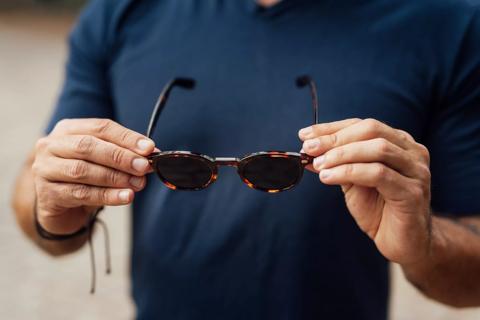
Start low-vision rehabilitation as soon as possible and see your retina specialist at least every six months

These trendy glasses might brighten some shades and help you see the difference between colors or brightness of hues, but they won’t cure your color vision deficiency
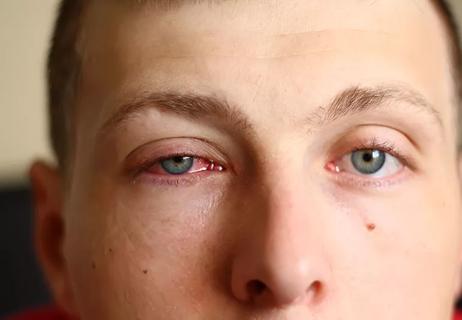
Eye drops and cold water rinses can help speed up healing for viral and allergen-related conjunctivitis, but a bacterial infection will need antibiotics
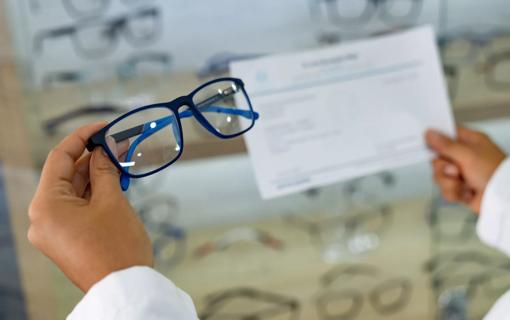
Your eye prescription reveals a lot about your eye health, including how they’re shaped, how well you see and what your new glasses can do for your sight
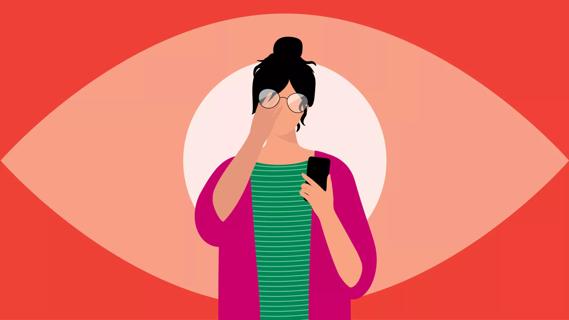
From scratching your cornea and tearing your retina to introducing allergens and causing infections, pawing at your peepers just doesn’t pay off

Focus on your body’s metabolic set point by eating healthy foods, making exercise a part of your routine and reducing stress

PFAS chemicals may make life easier — but they aren’t always so easy on the human body

While there’s little risk in trying this hair care treatment, there isn’t much science to back up the claims